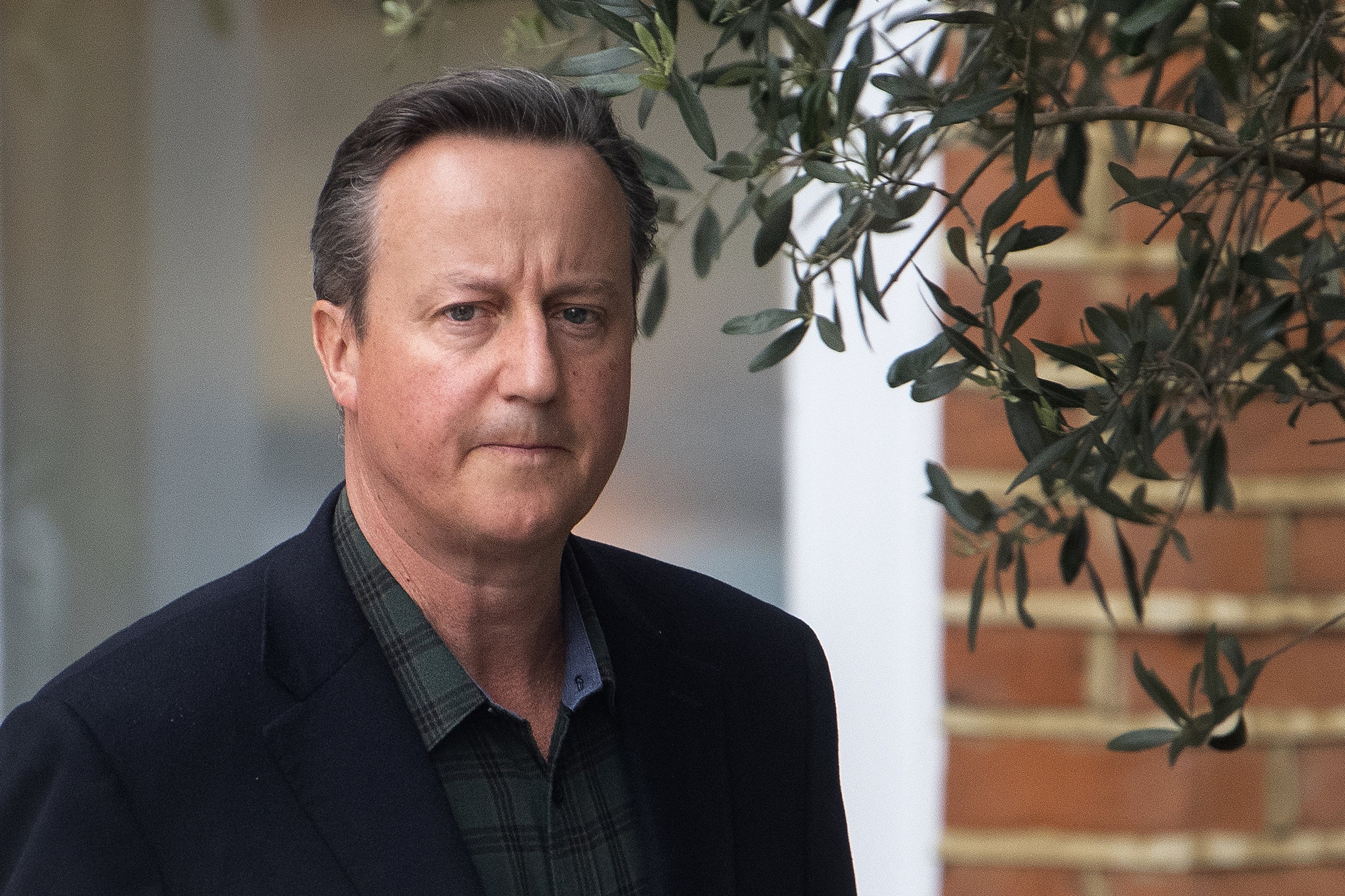David Cameron’s legacy project has budget slashed after Independent expose
Youth scheme has received £1.3bn in taxpayers’ money since 2011 but now has its funding severely cut

Your support helps us to tell the story
From reproductive rights to climate change to Big Tech, The Independent is on the ground when the story is developing. Whether it's investigating the financials of Elon Musk's pro-Trump PAC or producing our latest documentary, 'The A Word', which shines a light on the American women fighting for reproductive rights, we know how important it is to parse out the facts from the messaging.
At such a critical moment in US history, we need reporters on the ground. Your donation allows us to keep sending journalists to speak to both sides of the story.
The Independent is trusted by Americans across the entire political spectrum. And unlike many other quality news outlets, we choose not to lock Americans out of our reporting and analysis with paywalls. We believe quality journalism should be available to everyone, paid for by those who can afford it.
Your support makes all the difference.David Cameron’s controversial legacy project has had its budget slashed by two-thirds in a review of government youth funding.
The National Citizen Service (NCS), set up by the then prime minister in 2011, has had its share of cash cut from 90 per cent of the overall government budget for youth funding to just 30 per cent.
It follows an investigation in The Independent that found the scheme had consistently failed to meet government targets or deliver value for money, that executives were being handed six-figure salaries despite dwindling youth participation and that a former board member said the programme was little more than “a holiday camp for mostly middle-class kids.”
NCS, which has received £1.3bn of taxpayers’ money since 2011, was set up to run summer and autumn residential programmes for 16- and 17-year-olds to help them become better citizens, but no residentials were run in 2021 and only one smaller residential in autumn 2020 due to Covid-19.
Now the Department for Culture, Media and Sport has dramatically reduced money for the scheme. It has announced a total youth services package of £560m over the next three years, of which £171m – 30 per cent of the total – is earmarked for the NCS, down from more than 90 per cent in previous years.
This gives NCS only £57m a year, less than one-third of their typical pre-Covid funding package of around £180m a year, and a sharp reduction, too, on funding for the last two Covid-affected years of £75m and £85m respectively.
Shadow culture secretary Lucy Powell MP said the government had been “playing favourites” for years with Cameron’s pet project “without ensuring results and value for money”.
She added: “Ministers cannot deflect from their legacy of failure, which has slashed grassroots youth support to the bone in communities across the country, whilst disproportionately funding the National Citizen Service. There is a desert of support in many areas of the north and midlands because this government has played favourites without ensuring results and value for money.”
DCMS said its new spending plans were the outcome of consultations with 6,000 young people and 170 youth organisations, in which the biggest clear ask to emerge from young people was for “regular weekly clubs and activities” – in stark contrast to the one-off residentials offered by NCS, which involved young people for just two or three weeks a year. DCMS will instead use the majority of the youth budget to fund up to 300 new and refurbished youth facilities “in the most deprived parts of England”, providing young people with “a space to engage in positive activities outside of school” and ongoing “access support from youth workers”.
DCMS has also effectively slapped down NCS for being too middle-class, demanding the organisation starts to “reform”, be more “cost-effective”, and reach more young people “from disadvantaged backgrounds” in a “year-round offering” as part of the government’s so-called “levelling up” agenda.
The chief executive, Mark Gifford, acknowledged that the organisation would need to evolve its strategy to keep up with the expectations of users as well as meeting the “levelling up agenda” expectations of the government.
Asked about the £85m last year, Mr Gifford said: “Whilst we did not run any residentials due to government restrictions, we ran programmes which delivered a similar experience, but with day travel to activities in the local community. On the summer programme, despite Covid, we reached around 35,000 young people and in autumn we reached just over 12,000. We also delivered skills booster sessions in a range of schools. We have some programmes still running and are not able to confirm final numbers for this financial year until April 2022.”
Mr Gifford sought to remain upbeat, despite the funding review falling short of expectations. He said: “We’ve always been ambitious with our plans but are also aware of the incredible demands on the public purse as the country emerges from Covid. Far from feeling disappointed, we are fired with energy and optimism for what we can do to support the next generation of citizens.”
Mr Gifford continues to take a remuneration package of over £160,000, with five other members of the leadership team paid well over £100,000 a year. But with current annual costs of £72m exceeding the future funding package by £15m, the organisation faces tough choices and severe cuts as it seeks to reimagine its purpose, balance its budget and keep a clear vision.
Join our commenting forum
Join thought-provoking conversations, follow other Independent readers and see their replies
Comments